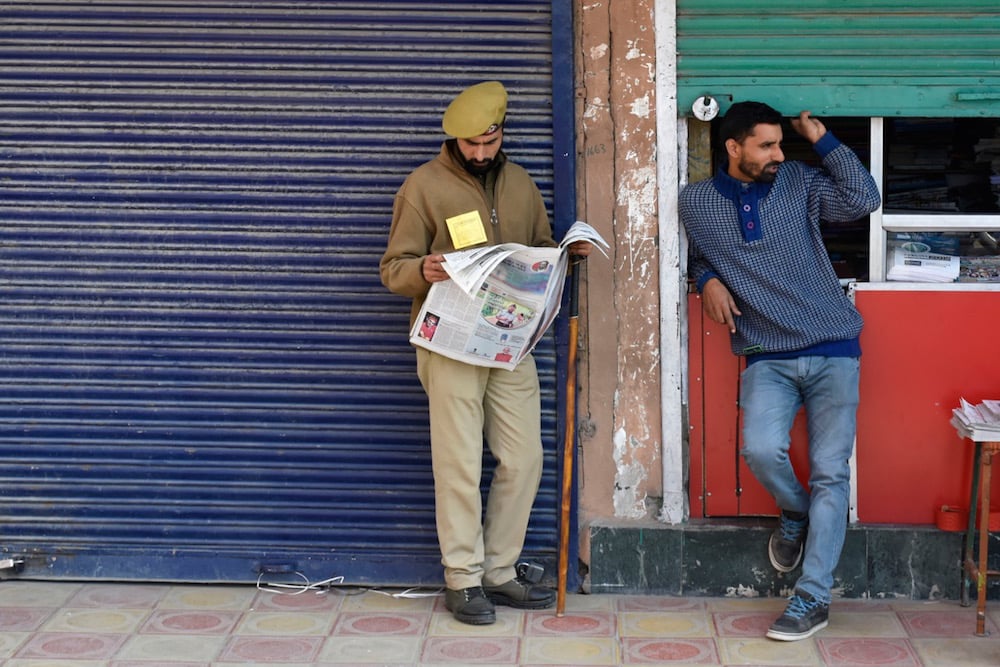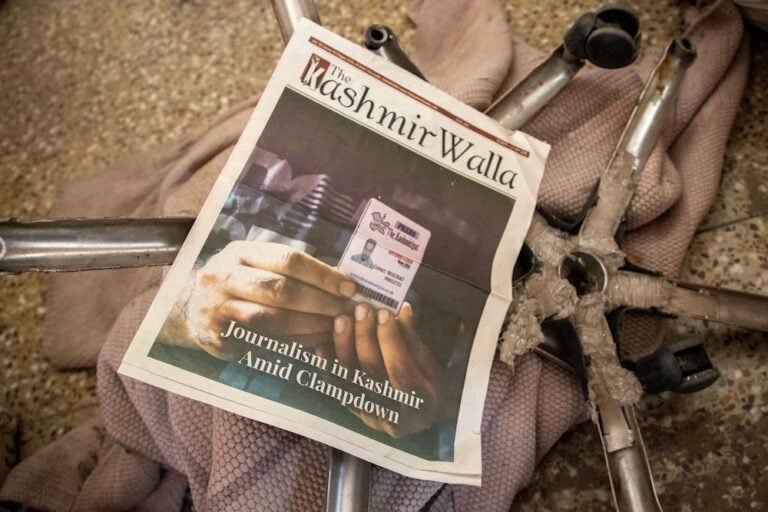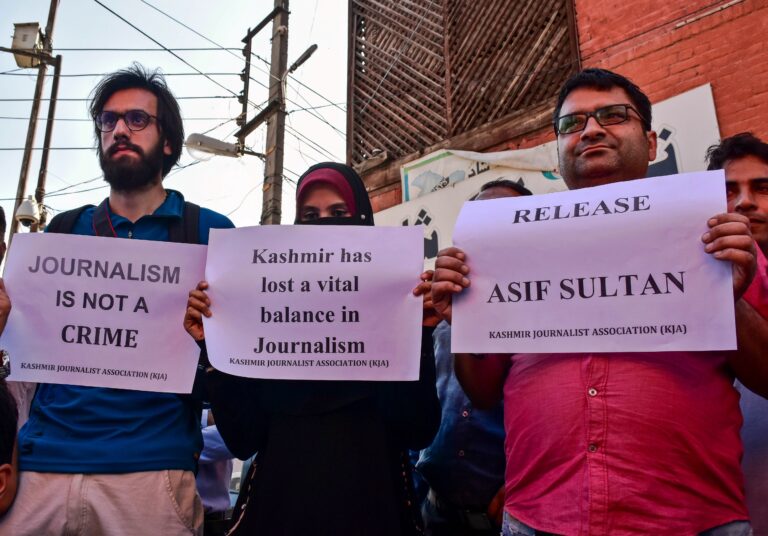The eviction of journalists and the sealing of the entrance of one of the oldest English-language publications in the Kashmir Valley, the "Kashmir Times", is seen as government reprisal against the paper's editor who has spoken out in defense of press freedom.
This statement was originally published on rsf.org on 21 October 2020.
Local officials evicted journalists from the office of the English-language Kashmir Times newspaper yesterday in Srinagar, the capital of Indian-administered Kashmir, and then sealed the premises. Reporters Without Borders (RSF) is appalled by this reprisal against a leading regional daily.
The eviction was carried out by representatives of the regional government’s estates department, who arrived unannounced, expelled the newspaper’s employees without presenting any justifying documents, and then placed seals on its entrance.
Kashmir Times executive editor Anuradha Bhasin called it a “vendetta for speaking out.” She told RSF: “All our office infrastructure, including computers, printers, generators and so on, are locked inside to prevent us from producing our print edition in Srinagar.”
The Jammu and Kashmir regional government had been renting the premises to the newspaper since 1993, as it does to other media outlets based in Srinagar’s so-called “press enclave.”
Broken locks
Bhasin said she was evicted in a similar manner a few weeks ago – without being served any cancellation and eviction notices – from the apartment the government had allotted to her in 2000.
“Locks to my flat were broken, as I was not staying there, and the new [tenants] were given charge of the place along with my belongings, including valuables and important documents that have not still not been given to me,” she said.
Bhasin thinks she is paying the price for her determined defence of a free press in Jammu and Kashmir since the region’s autonomy was revoked in August 2019 and, in particular, for the petition she filed with India’s supreme court challenging the simultaneous decision to disconnect the region’s telecommunications.
“Since then, the state government stopped all advertisements to Kashmir Times, she said.
“The arbitrary way the Kashmir Times’ journalists were expelled from their office is extremely shocking,” said Daniel Bastard, the head of RSF’s Asia-Pacific desk. “The Jammu and Kashmir administration no longer even bothers to provide a legal facade to the actions it takes to attack the free press. We ask India’s supreme court to intervene in this flagrant violation of article 19 of the constitution.”
Bold journalism
One of the oldest English-language publications in the Kashmir Valley, the Kashmir Times is widely respected, so its eviction from its Srinagar office had stunned many of the region’s journalists.
“I started my journalistic career at this newspaper, which has traditionally been fiercely independent,” Athar Parvaiz told RSF. “The atmosphere encouraging fearless journalism at the Kashmir Times has always been great and I benefited enormously while working there.”
“Many of the journalists based in Jammu and Kashmir started their careers at the Kashmir Times,” said Syed Ali Safvi, another of its former reporters. “Over the years it has given voice to the voiceless and established itself as an institution you could trust. It is really painful to learn that its office has been sealed.”
India is ranked 142nd out of 180 countries in RSF’s 2020 World Press Freedom Index.



